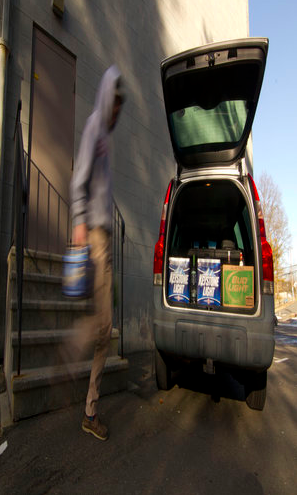
For the purposes of this article, certain sources were granted anonymity due to the sensitive nature of the topic.
His Friday afternoons typically begin with a text message that would seem normal under any other circumstances.
“Are you going on a run?”
Some kids make extra money shoveling snow. Others, by babysitting in their spare time. But this junior athlete gets a weekly source of income from going on so-called “runs.” Far from athletic, they entail trips to one of several liquor stores in the area. The purpose? To buy alcohol, which will eventually be sold to both underclassmen and upperclassmen—friends, acquaintances and sometimes perfect strangers—at varyingly marked-up prices.
The phenomenon of “going on a run” is common among the Staples community and follows a well-worn process. Fake IDs are purchased for upwards of $100. Liquor stores are scouted. Information is traded: which stores will sell alcohol to obvious minors? Which stores don’t ask to see an ID?
For many, though, obtaining a fake ID is hardly an issue.
“I got mine from a website that is run out of Vietnam. My friends and I pitched in for a group order so the price was reduced. It was $85 for two IDs,” said the junior athlete. “It’s a great ID. It’s proved to be successful all over Fairfield County.”
Other sources indicated a similar ease in acquiring false identification.
“I got it through a guy that my sister’s friend knew from one of her camp friends,” said a senior girl, an honors student. “It was pretty easy, but kind of sketchy. It cost $100.”
Closer to the weekend, requests for alcohol begin pouring into known buyers. Some purchase for a large group of people. Others cater to a smaller group of consumers. One such alcohol-purchaser, a senior musician, explained that he typically buys alcohol for only two or three of his closest friends.
Money, in the form of cold, hard cash, is the preferred form of payment. Some sources explained that they spend their own money purchasing alcohol, only to sell it at a higher price so as to make a profit.
According to a senior artist, typical price-markup depends on factors such as the alcohol’s original price, the difficulty of obtaining it and a given buyer’s relationship with his or her customers. A close friend is much more likely to receive a good deal than an unknown underclassman.
“Ripping off underclassmen is standard practice, and, because of their immaturity and lack of automobiles, they deserve it,” he said.
The junior athlete explained that he typically makes a profit of about $20 per individual when he buys alcohol for others, which gives him a fairly steady weekly income.
“Usually, throughout the week, three or four different people will ask me for alcohol, not including myself,” he said. “Traditionally, I go on one run on Friday or Saturday depending on when I need the alcohol or when others need it.”
All sources indicated that they drive to a particular liquor store—often a “vetted” location that they have safely frequented for quite some time—to purchase the alcohol themselves. Often, the “runners” are accompanied by friends.
“If it’s a large order, I’ll need a friend to come in with me to help me carry the stuff back to my car,” said the junior athlete.
Then, with a trunk full of alcohol, they drive home.
When asked whether or not he felt scared driving with alcohol in his car, the senior musician responded, “It doesn’t worry me at all.”
Others felt similarly.
“I drive carefully on the way home, so I’m fine with it,” said the junior athlete. “Getting pulled over is very rare if you’re driving well, so I really don’t mind driving alcohol.”
However, according to Nancy Aldrich, attorney-at-law with the firm Aldrich & Aldrich, a minor in Connecticut who is caught with alcohol in his or her car can face serious legal repercussions.
“If you are under 21 and do not have an adult in your car, you will be arrested for an infraction and have to go to court,” Aldrich said. “If you plead guilty, the Department of Motor Vehicles will suspend your license automatically, and you will be fined.”
Indeed, the entire process of “going on a run” is rife with potential legal repercussions which could affect everyone from the student purchasing alcohol to the adult selling it. According to Aldrich, a minor caught using a fake ID to purchase alcohol could receive up to 30 days of jail time, a hefty fine and a license suspension.
For an adult employee at a liquor store, the potential criminal consequences of selling alcohol to minors are even greater.
“That is a crime,” said Aldrich. “The adult could go to jail for up to 18 months and could be fined up to $1,000.”
Most of the sources indicated that they tend to purchase alcohol with as little danger of being caught as possible. To reduce the risk of having fake IDs checked for validity, many have chosen a “safe” liquor store and stuck with it, rather than moving around to different stores each week.
“I’ve personally been going to the same store for over two years now,” said a senior photographer. “I’m on a first name basis with the owners and I don’t even get carded—if anything, I get a discount now.”
“At the beginning, the entire process was kind of nerve- wracking,” said the senior honors student. “Now I only go to places that I know are lenient—never really a ‘legit’ liquor store.”
Most sources explained that they try to visit liquor stores that are far away from Westport for privacy reasons.
“I would never go to a store in Westport, out of fear of seeing a parent or adult that I knew,” the junior athlete said. “The parent would immediately recognize me as an underage student, and it would get awkward really fast.”
According to the senior artist, several different factors have to be considered when identifying a store where being carded with scrutiny is unlikely. These range from the store’s size—chain stores, with more staff and more money to spend on ID scanners, are known to be more difficult to purchase from—to the legal dedication of the employees who ultimately make the final call on the sale.
“I would wager that clerks usually have a good sense of who might be underage and that the difference lies in whether they care or not,” the senior artist said. “They too were once high school students.”
The key, the senior artist notes, lies in one’s ability to act out the part in a believable manner. Going on a successful run requires a student to “assume the mindset of a 21-year-old.” Being fidgety and looking nervous are quick ways to end up with a confiscated fake ID or, even worse, a call to the local police.
“You’re not breaking the law, you’re not taking any risks, you’re just a 21-year-old looking to grab some brews for your Fairfield U roommate’s birthday,” the senior artist said.
While it may sound simple, there is no hiding the severity of the consequences that can result from being caught. Some buyers have come to view these inherent risks as outweighing the benefits and have discontinued their practice of going on runs.
“Let’s say you sell a $23 handle of Smirnoff for $30. It’s 10 minutes to the store and probably another 20 to deliver it,” the artist said. “Factor in gas, risk, and inconvenience and you arrive at the conclusion that there are far better ways to come up with $7.”
At the same time, the demand for alcohol among the Staples community is still high, and many sources have no intention of stopping anytime soon.
“The worst part is walking into the store, but, overall, it’s really not that bad,” said the junior athlete. “It can even be fun.”
The senior photographer felt similarly, indicating that the illegality of purchasing alcohol underage is, in his opinion, a non-issue.
“It feels perfectly fine to know I’m committing crimes. I don’t even think twice about it,” he said. “After two years and easily over 100 runs to the same store, it’s almost like second nature.”

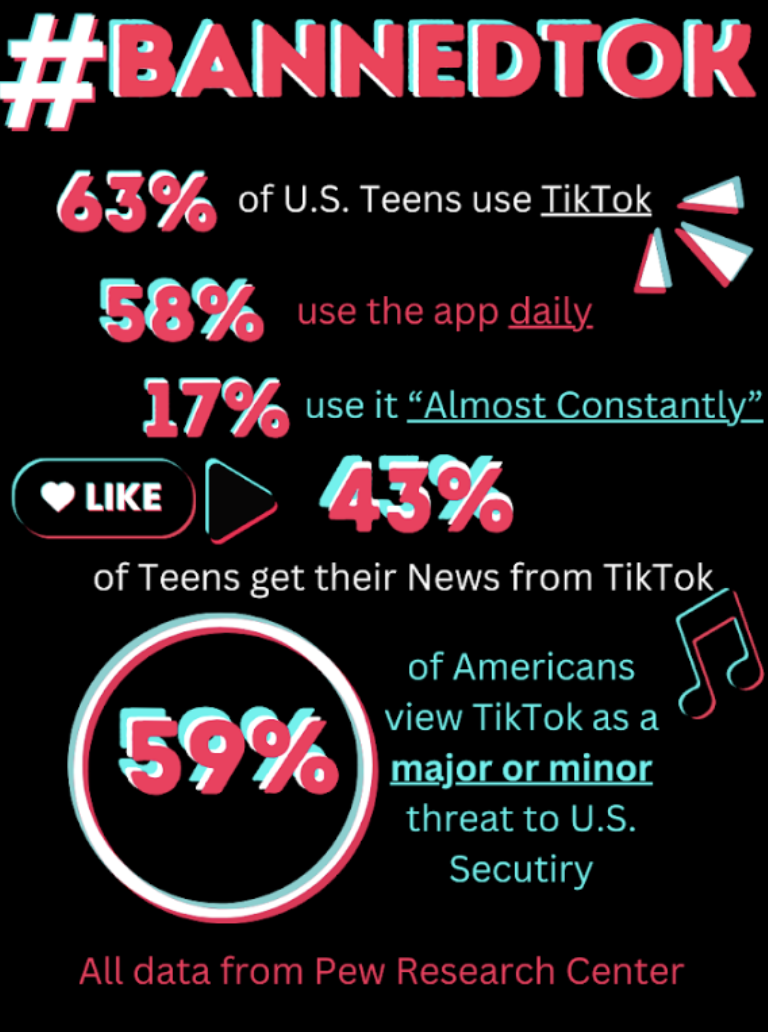









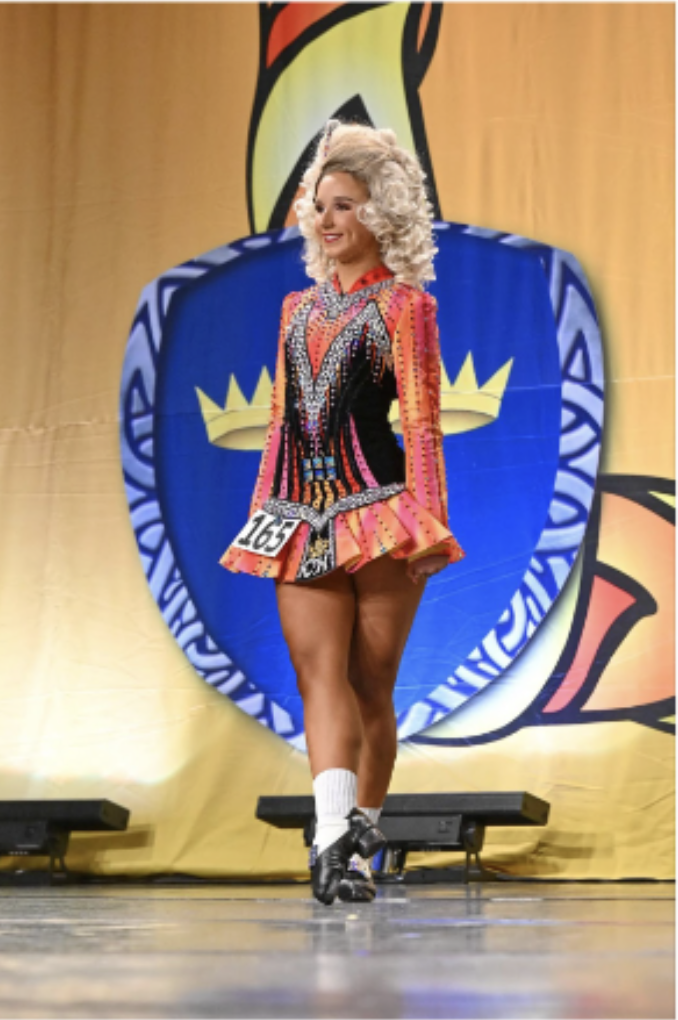









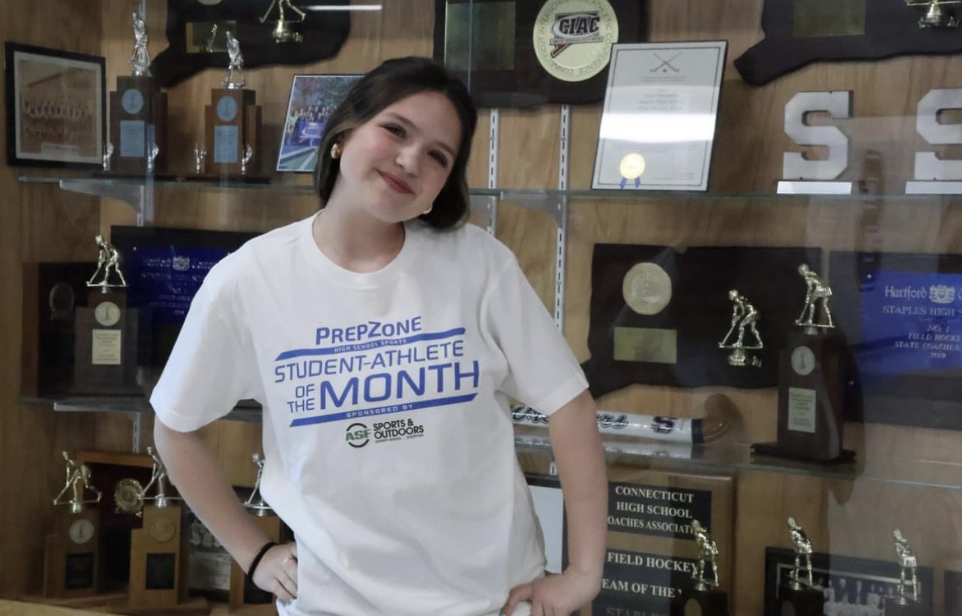
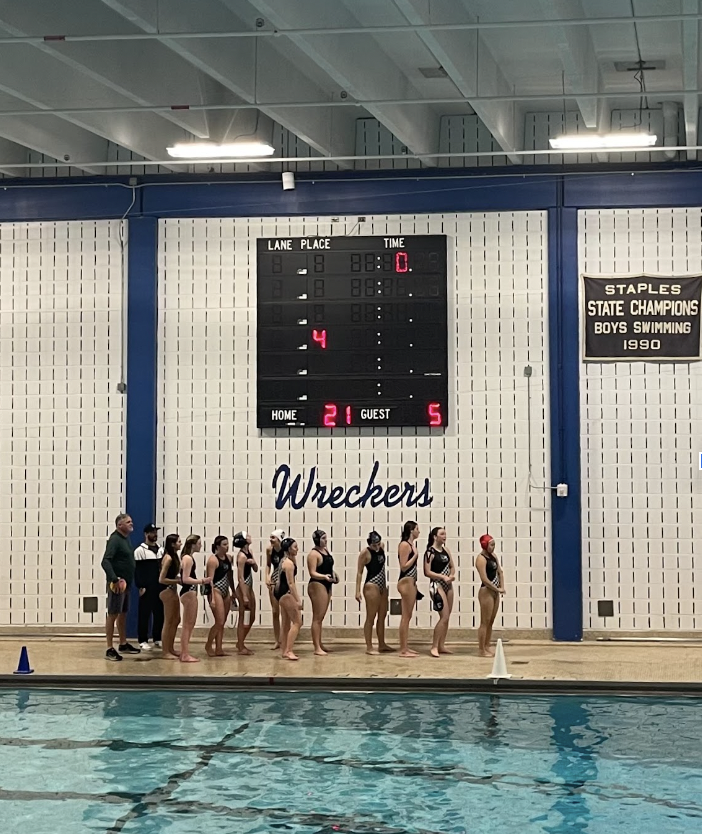



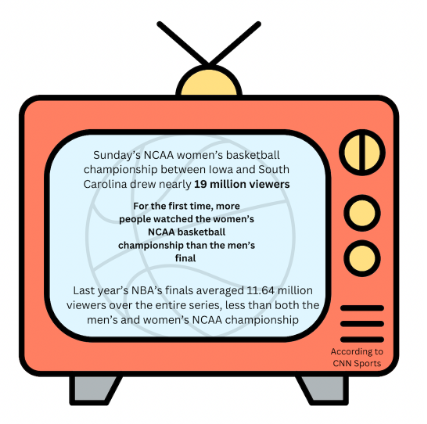

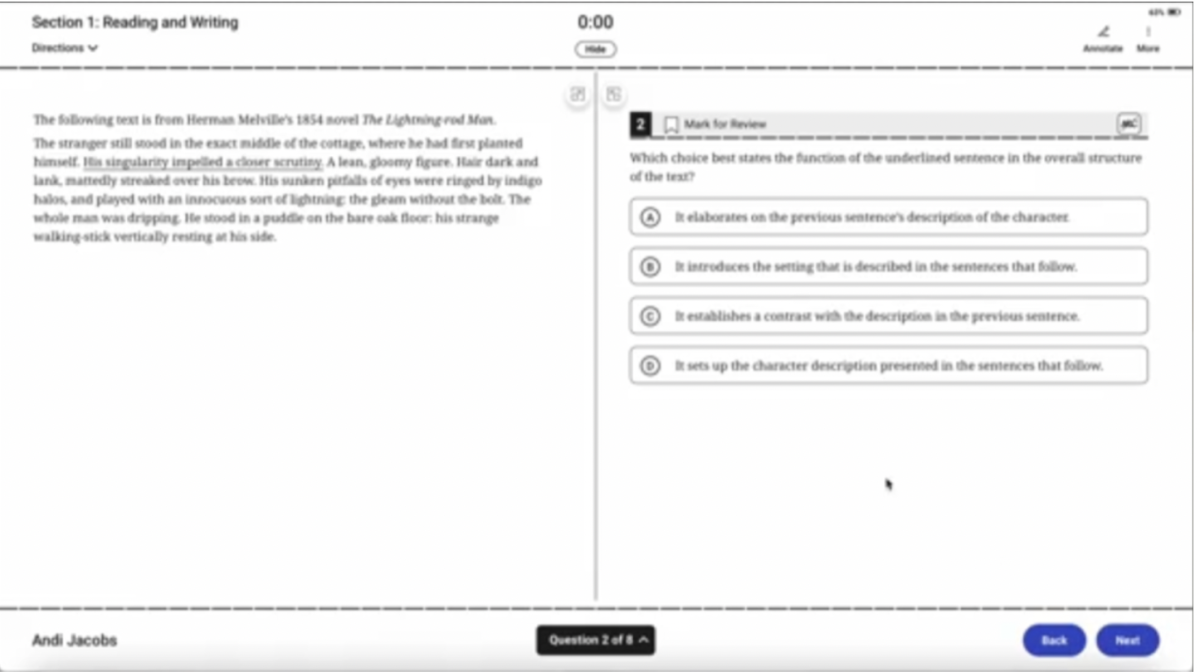
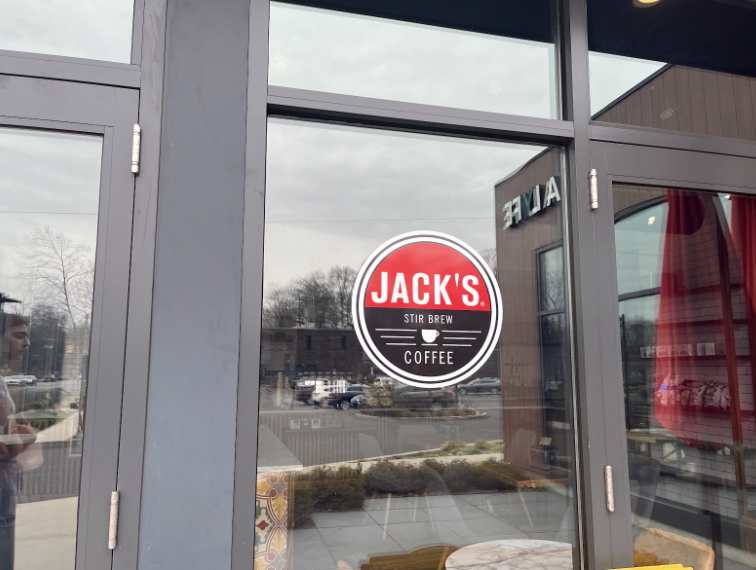
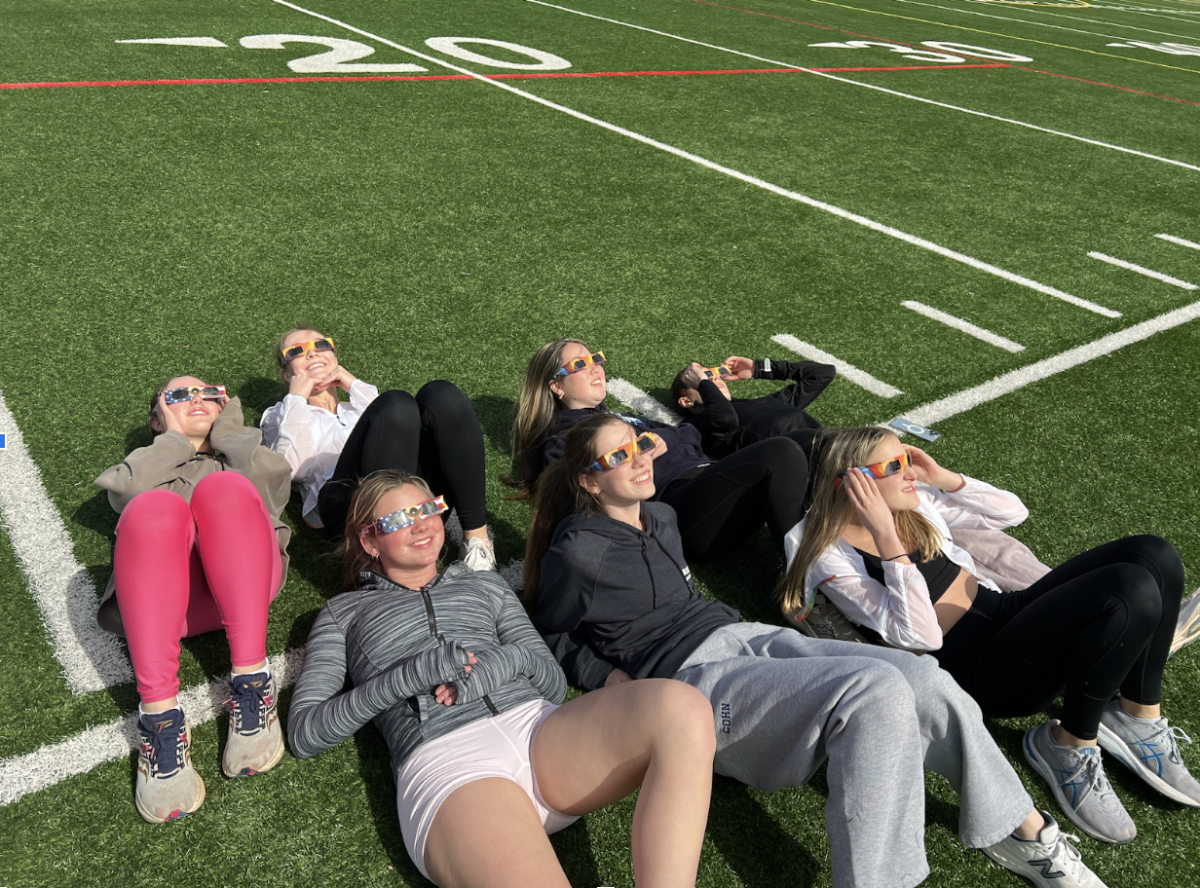















Dan Woog • Mar 16, 2013 at 8:12 am
Congratulations, Ned and Will, on another important, intriguing and well-written piece.
But I noticed something I’ve seen in other recent Inklings stories: referring to students as “an athlete,” “a musician,” a photographer,” etc. This seems to go against something we try to do at Staples: not pigeonhole people. There are plenty of athletes who are also musicians, etc.
Would you want to be identified in a story as “a senior Inklings writer”? Aren’t you more than one thing?
Similarly, describing a source as “a senior girl, an honors student” seems really limiting. Is that the most important thing about her? Doesn’t she also have activities outside the classroom?
I hope Inklings will revisit this policy. It seems arbitrary, capricious, and ultimately destructive to the type of all-embracing community all of us are trying to create here.